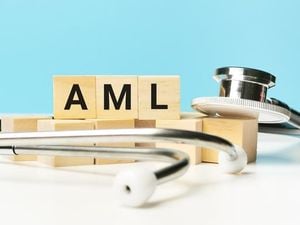A groundbreaking advancement has been made in the field of stem cell research, with scientists successfully generating monkey blastoids from aged somatic cells. This innovative approach has reached formation levels of up to 80%, significantly higher than the previously achieved efficiencies of around 30% using embryonic stem cells.
Blastoids, which are blastocyst-like structures formed through laboratory techniques, serve as valuable models for studying early embryonic development without ethical complications associated with the use of human embryos. Conducted at the State Key Laboratory of Primate Biomedical Research, this study utilized not only induced pluripotent stem cells (iPSCs) but also somatic cell nuclear transfer embryonic stem cells (nt-ESCs) derived from aged monkeys, providing insights relevant to human biology.
Utilizing cutting-edge hydrogel technology combined with advanced microfluidics, researchers have developed scalable and reproducible methods for creating size-adjustable and biodegradable blastoid capsules. This innovation not only enhances the efficiency of blastoid generation but also offers protection and stability to these delicate structures, which are poised to shed light on fundamental processes of embryonic development.
Prior studies had explored the capabilities of cynomolgus monkey embryonic stem cells to create blastoids, albeit with limited success. The introduction of this new system marks a significant leap forward, as noted by the authors of the article, who stated, "An efficient method to develop blastoids from aged autologous PSCs is desirable for regenerative medicine due to reduced immune rejection." This advancement not only has the potential to enrich our comprehension of primate embryology but also opens avenues for regenerative therapies.
Researchers also emphasized the expansive potential of the new hydrogel-based microfluidic platform. They reported production capabilities of up to 4000 blastoid capsules per hour, which creates exciting possibilities for extensive research initiatives. This high-throughput production could enable detailed studies of tissue regeneration and developmental biology using these advanced models.
The study's findings stress the importance of monkey blastoids as powerful alternatives for experimental investigations, and the effects observed could mirror those expected from human embryos, thereby paving the way for real-world applications. The researchers remarked, "Blastoids derived from non-human primates present a powerful alternative for experimental investigations and should provide insights to bypass ethical issues."
While this research is already promising, there remains significant work to be done. The successful extension of culture conditions to study cellular processes beyond the initial stages of implantation will be key for future endeavors. By improving these methods, scientists hope to facilitate greater insights not only about primate development but also about potential clinical applications.



